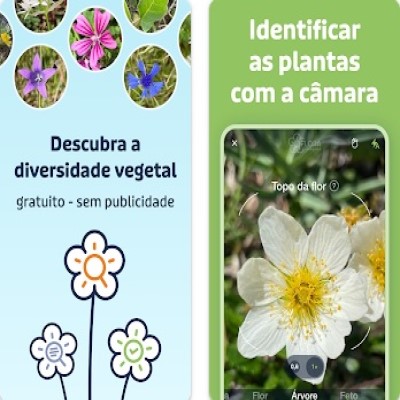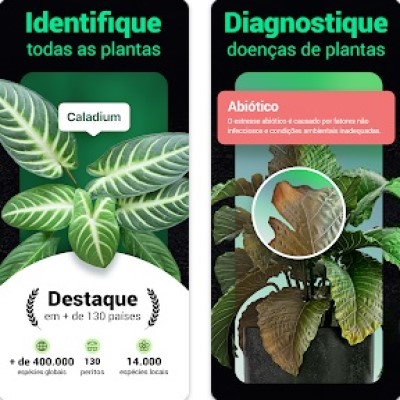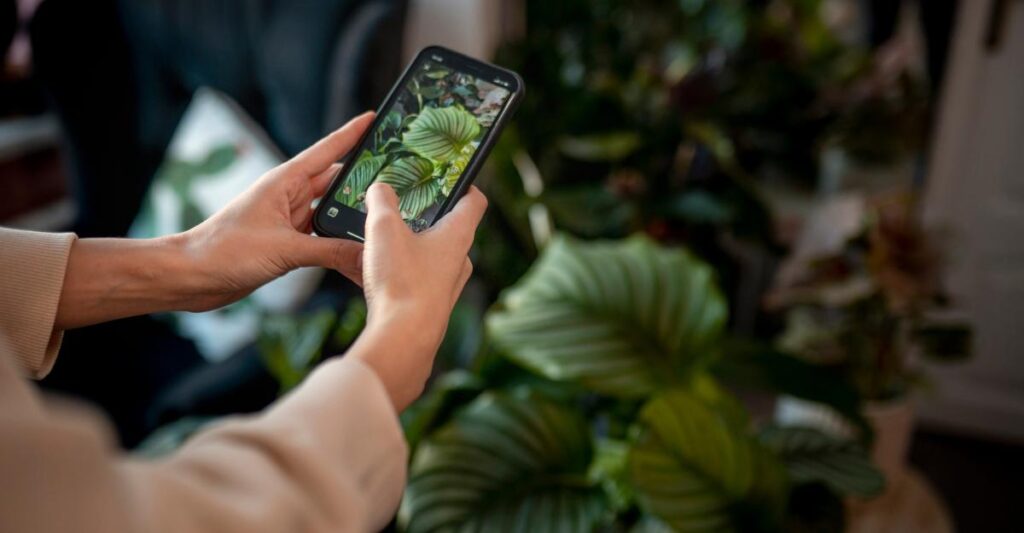Plant detection apps are valuable tools for those who want to expand their understanding of vegetation in general. Whether out of personal curiosity or for educational purposes, these technologies offer a quick and efficient method for recognizing the name of a plant. By simply using your cell phone camera, you can access detailed information about the various botanical species.
If you are interested in exploring the world of plants in more depth and understanding these innovations, keep reading. Below, we will present the main platforms aimed at identifying species, their benefits, and the essential criteria for choosing the most appropriate option for your needs.
1. Plantify
Plantify is a platform designed to help identify plants, flowers, trees, succulents and mushrooms. Using a smartphone camera or photos from the gallery, users can access detailed information about various plant species. The app's artificial intelligence enables quick and accurate identification, making it an essential tool for botany and gardening enthusiasts.
Available for devices Android and iOS, Plantify can be obtained free of charge from the respective app stores. Its intuitive interface makes navigation simple, allowing people with different levels of knowledge about the plant universe to access its functionalities easily. The app has an extensive database and extra features, such as care alerts and plant health diagnostics.
2. PlantCam
PlantCam is a tool designed to help identify plants, flowers and weeds quickly and accurately. Using your phone's camera, you can capture an image of an unknown plant and, in a matter of seconds, the app provides detailed information about the species, including its scientific name, characteristics and care instructions.
Available for devices Android and iOS, PlantCam can be downloaded for free from the corresponding app stores. Its intuitive interface makes it easy to navigate, allowing people of different experience levels to use the app with ease. PlantCam also features an AI-based “Plant Doctor” that provides expert guidance on plant care and diagnosis of plant problems.
3. PictureThis
PictureThis is a popular platform for recognizing plants, offering an intuitive and accurate experience for botany enthusiasts. From a simple photo taken with a smartphone camera, the app analyzes the image and provides detailed data about the plant, including its scientific name, recommended care and interesting facts.
Available for both Android as for iOS, PictureThis has a free version and a premium subscription, which offers additional features. The paid version allows unlimited identifications, personalized recommendations, and a more comprehensive database of pest care and prevention. Users can also create a history of identified plants and track their progress.
4. Flora Incognita

Flora Incógnita is a free platform created to help identify native plants quickly and accurately. Using advanced artificial intelligence algorithms, users can capture an image of an unknown plant and, in just a few moments, obtain detailed information about the species, such as its scientific name, characteristics, geographic distribution and conservation status.
Available for systems Android and iOS, Flora Incógnita can be downloaded free of charge on both platforms, without ads or registration requirements. The user-friendly interface makes it easy to navigate, making the app accessible to botany lovers, students and environmental professionals. The app is the result of a partnership between the Technical University of Ilmenau and the Max Planck Institute for Biogeochemistry, with the mission of promoting environmental education and the preservation of biodiversity.
5. Plantum

Plantum is a platform designed to help identify plants, fungi, rocks and insects, using artificial intelligence technology to provide accurate data on over 40,000 natural items. With an easy-to-use interface, users can capture or upload images and get detailed descriptions of the species, including scientific name, characteristics and care instructions.
Available for devices Android and iOS, Plantum can be downloaded free of charge from app stores. The free version offers basic functions, while the premium version unlocks additional features, such as unlimited identification and access to a more complete database. With millions of users in over 135 countries, the app stands out as an essential tool for botany and gardening enthusiasts.
Benefits of Plant Detection Apps
Plant detection apps offer a number of benefits to users, making learning about botany more accessible and engaging. Here are some of the main advantages of these digital tools:
- Ease of use: To get started, simply take a photo of the desired plant, and the application automatically performs the analysis, facilitating the learning process.
- Access to a vast database: Many of these platforms have extensive catalogs containing information on thousands of species around the world, which makes them extremely useful.
- Continuous improvement of knowledge: Additionally, some services suggest new species to explore and allow users to contribute to improving the database, which promotes the constant evolution of the system.
- Additional resources: Many apps offer information about plant cultivation, their natural habitats and specific characteristics, helping to gain a deeper understanding of the species.
- Practicality: Having botanical recognition right on your smartphone makes interacting with nature much simpler and more convenient.
How to choose the best app to detect plants
When it comes to choosing the best botanical identification app, the most important initial criterion is the comprehensiveness of the database. The quality of an app directly depends on the variety of species it is able to identify. The larger the catalog, the more accurate and varied the service will be, especially when dealing with lesser-known plants.
Another essential aspect to consider is the ease of use of the platform. Clarity and practicality in design are vital to providing a smooth user experience. If the application has a confusing layout, it can make the identification process difficult, compromising its effectiveness. Therefore, it is essential to choose a tool with an intuitive interface and easy navigation.
Furthermore, the accuracy of the visual recognition system is another crucial factor. Even with an extensive database, the tool’s efficiency depends on the quality of the algorithm that processes the images. Therefore, reviews from other users and practical tests can be decisive in ensuring that the application provides accurate results. This is especially important to ensure the reliability of the identification process.
Finally, it’s important to consider the additional features that the app offers. Many of these aren’t limited to just identification, but also provide detailed information about plant characteristics, growing tips, geographic location, and even therapeutic uses. These additional features add value to the user experience, transforming the identification process into an opportunity to expand knowledge.
Plant Detection App FAQ
1. Can these platforms recognize all types of plants?
No, they do not guarantee the identification of all species. Although they are quite effective, these apps may fail when trying to recognize rarer plants or those that have characteristics that are very similar to others. In addition, the clarity of the photo taken can directly impact the accuracy of the result.
2. How can I improve the accuracy of my analysis?
For the most accurate results, it is recommended to take well-lit and sharp photos. Try to capture different parts of the plant, such as the leaves, flowers, and stem, making sure that all important details are visible to the app.
3. Are these apps completely free?
Most of the time, these apps offer a free version with limited functionality. However, to access more advanced features, you may need to make in-app purchases or subscribe to a premium plan.
4. Can I use these apps without an internet connection?
Some apps allow offline use, but not all do. So before deciding which platform to use, it's important to check whether it supports offline operation.
5. Do these apps provide data on medicinal plants?
Yes, many of these platforms include information about plants with therapeutic properties. However, before using any plant for medicinal purposes, it is essential to consult a health professional to avoid health risks.
Did you enjoy learning about apps for detecting plants?
Digital tools for plant identification are essential resources for those seeking to better understand the vegetation around them. They not only facilitate the recognition of species quickly and efficiently, but also promote learning about the enormous diversity of existing plants.
Read more: Calorie measuring apps
The choice of applications to detect ideal plants depends on your needs, whether for quick consultations or for an in-depth study of botany. With so many options on the market, each application stands out for specific characteristics, such as the range of cataloged species, the effectiveness of the recognition system and the extra features they offer.

